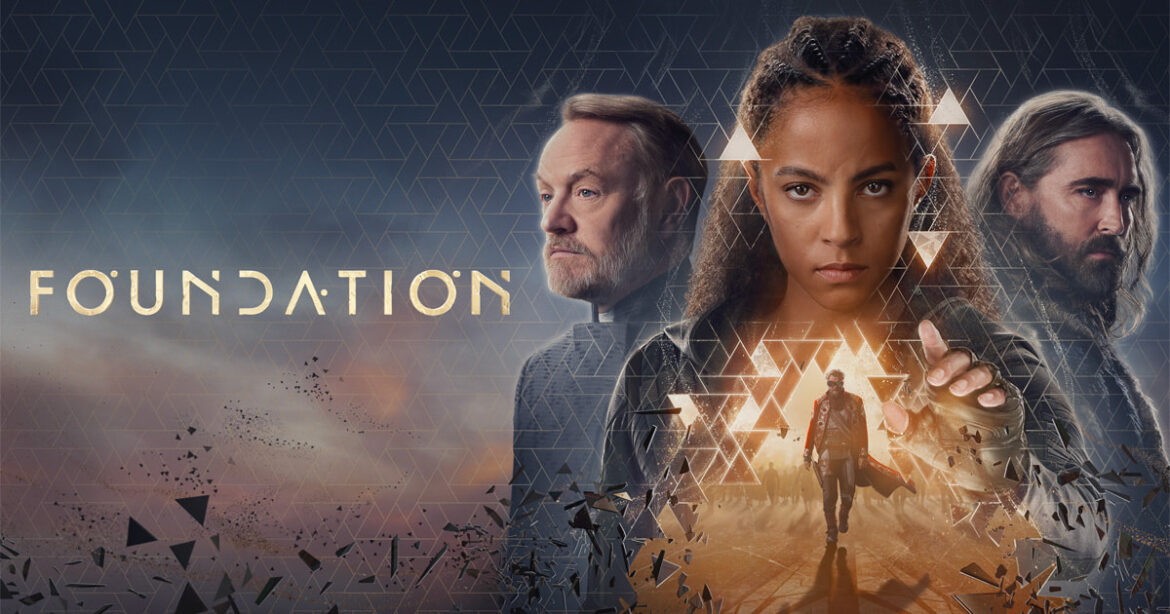In the vast expanse of science fiction television, few series have dared to tackle the monumental scope and intellectual depth of Isaac Asimov’s seminal work, Foundation. Apple TV+’s adaptation, created by David S. Goyer and Josh Friedman, embarks on a daring journey to bring Asimov’s vision to life. With its intricate storytelling, complex characters, and stunning visuals, Foundation has become a standout in the realm of speculative fiction.
A Galactic Tapestry of Power and Knowledge
At its core, Foundation is a narrative about the cyclical nature of history, the fragility of empires, and the enduring power of knowledge. The story is set in the distant future, where the Galactic Empire, a vast and seemingly invincible entity, is on the brink of collapse. Enter Hari Seldon (Jared Harris), a brilliant mathematician who develops “psychohistory,” a scientific discipline that combines history, sociology, and statistical mathematics to predict the future of large populations.
Seldon foresees the impending fall of the Empire and the ensuing dark age that will last for millennia. To mitigate this, he establishes the Foundation—a group of scholars and scientists tasked with preserving and expanding human knowledge. Their mission: to shorten the period of chaos and pave the way for the rise of a new, enlightened empire.
A Cast of Complex Characters
The strength of Foundation lies not only in its grand ideas but also in its richly developed characters. Jared Harris delivers a compelling performance as Hari Seldon, portraying the character’s intellectual brilliance and moral dilemmas with nuance and depth. Lee Pace’s portrayal of Brother Day, the ambitious and calculating ruler of the Empire, adds layers of complexity to the political intrigue that permeates the series.
Lou Llobell brings to life Gaal Dornick, a young mathematician who becomes an integral part of Seldon’s plan. Her journey from a naive academic to a key player in the Foundation’s survival is both compelling and relatable. Other standout performances include Leah Harvey as Salvor Hardin, the pragmatic and resourceful First Minister of Terminus, and Laura Birn as Demerzel, the enigmatic robot who serves the Empire’s rulers.
Visual Splendor and World-Building
One of the most striking aspects of Foundation is its visual storytelling. The series boasts a production design that captures the grandeur and decay of a galaxy-spanning civilization. From the opulent palaces of the Empire to the barren landscapes of distant planets, the show’s cinematography immerses viewers in a universe that feels both awe-inspiring and lived-in.
The special effects are top-notch, bringing to life the advanced technologies and spacefaring adventures that are central to the narrative. Whether it’s the depiction of massive space stations or the intricate designs of futuristic cities, the visual elements of Foundation enhance the storytelling and draw viewers deeper into its world.
Philosophical Underpinnings and Contemporary Relevance
While Foundation is set in a distant future, its themes resonate with contemporary issues. The series delves into questions of governance, the role of science and religion, and the ethical implications of artificial intelligence. The portrayal of the Empire’s reliance on cloning to maintain power raises questions about identity, autonomy, and the nature of leadership.
The character of Demerzel, a robot who has served the Empire for centuries, embodies these themes. Her interactions with the human rulers of the Empire explore the complexities of artificial intelligence and its place in society. As the series progresses, Demerzel’s evolving understanding of humanity and her own existence become central to the narrative, prompting viewers to reflect on the ethical dilemmas posed by advanced technology.
Reception and Critical Acclaim
Since its premiere, Foundation has garnered praise for its ambitious storytelling and high production values. On Rotten Tomatoes, the series holds an 87% approval rating based on 137 reviews, with critics lauding its “grand scale and intellectual depth.” Rotten Tomatoes
Season 2 further solidified the show’s reputation, earning a 100% approval rating from critics. The critical consensus reads, “With its complicated bedrock now established, Foundation spreads its wings in an improved sophomore season that rewards viewers’ patience with a brainy sci-fi epic of genuine grandeur.” Wikipedia
The third season, which premiered in July 2025, continues to explore the intricate dynamics of the galaxy’s political landscape. The season finale, airing on September 12, 2025, promises to deliver a dramatic confrontation involving Gaal and the Second Foundation against the Mule, while the Emperor’s legacy deteriorates. Decider
Looking Ahead: The Future of Foundation
As the series progresses, the stakes continue to rise. The confirmation of a fourth season ahead of the Season 3 finale has fans eagerly anticipating the next chapter in this epic saga. Decider
In interviews, Lee Pace has expressed excitement about the direction of his character, Brother Day, and the philosophical questions the series continues to explore. He notes the show’s focus on themes of identity, free will, and the impact of leadership decisions on the course of history. WIRED
Conclusion: A Must-Watch for Sci-Fi Enthusiasts
Foundation stands as a testament to the power of science fiction to explore complex ideas and human experiences. Its blend of intellectual rigor, compelling characters, and stunning visuals makes it a standout in the genre. Whether you’re a longtime fan of Asimov’s work or new to the series, Foundation offers a thought-provoking and visually captivating journey through the rise and fall of civilizations.
For those interested in exploring the series, all three seasons are available for streaming on Apple TV+. As the story unfolds, viewers are invited to ponder the cyclical nature of history and the enduring quest for knowledge in the face of inevitable decline.

